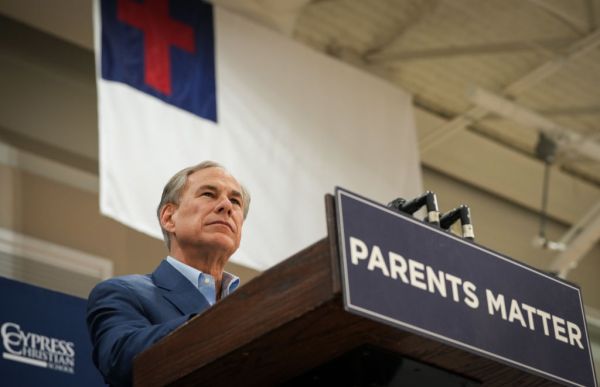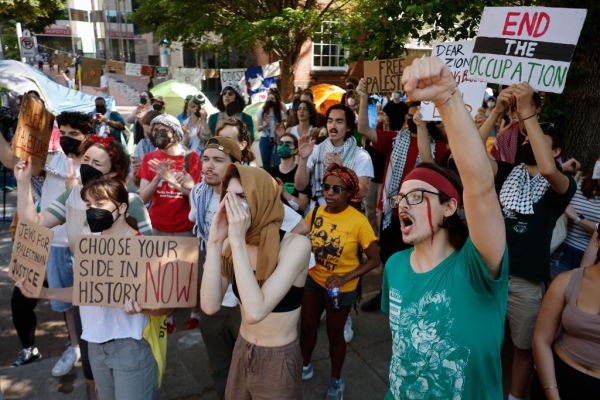A casual observer of education policy might well have scanned headlines over the last few years and concluded that America’s schools had been swept up in this era’s political polarization. The most covered stories—COVID recriminations, student debt cancellation, attempts to ban critical race theory, renaming schools—seem to come straight from today’s culture wars.
It is not uncommon for a few hot-button issues to dominate the education conversation at any given moment. Think of past battles over Common Core, school-funding litigation, teacher strikes, tenure reform, and selective-admissions public schools.
While those storms raged, however, more consensus-oriented reforms slowly but surely reshaped schooling. For example, the 20-year standards-and-accountability movement raised expectations about student learning, measured performance, and publicized results. The early 1990s creation of charters led to thousands of new and different choice-based public schools that now educate millions, including about half of students in some U.S. cities.
So do our leaders’ positions on education issues today fall along partisan lines, thereby contributing to the divides in American politics? Or are there quieter, more broadly supported ideas that have the potential to bring us together?
Yes.
There were 36 gubernatorial races last year. So, during the summer and fall of 2022, I collected information from the campaign websites of the 72 major-party nominees to understand what these potential state-level executives hoped to accomplish related to schools. The results tell us a great deal about partisan priorities and the near-term future of state policy.
There was more overlap among Democrats and Republicans than you might expect. Increasing K-12 funding and expanding career and technical education were among the top four issues for candidates in both parties. Though less widely supported, two other issues were embraced by similar numbers of Democratic and Republican nominees: supporting the state’s public university system and addressing COVID learning losses. Lastly, candidates agreed that the supposed nationwide teacher shortage was not a priority. Even though this subject was frequently covered in national outlets, only three candidates’ sites explicitly mentioned it.
Some areas, however, revealed pronounced partisan differences. Democratic candidates were far likelier to express support for increasing teacher pay and expanding pre-K and community college. Republicans were far likelier to express support for expanding school choice and a general category I called “curricular reforms” (which encompasses the related efforts to address concerns about politicized classroom materials and instruction—efforts like a “parents’ bill of rights,” rules for curricular transparency, and explicit bans on critical race theory).
Perhaps unsurprisingly, incumbents of both parties tacked toward the center. For instance, some Democratic non-incumbents (challengers and those vying for open seats) expressed opposition to school choice and state testing. Democratic incumbents did not. Republican incumbents were more likely to support more K-12 spending and higher teacher pay than Republican non-incumbents.
One of the most interesting findings relates to another key difference among Republican candidates. Curricular reforms were more popular among non-incumbent Republicans than incumbent Republicans and, remarkably, more popular among blue- and purple-state Republicans than among red-state Republicans. In other words, a Republican challenger in a swing state or state won comfortably by Joe Biden in 2020 was significantly likelier to elevate these issues than a Republican incumbent in a Trump state. It is not clear why. Perhaps red-state Republicans are less concerned about these issues because they believe local school boards are in sync with parents and community members, or maybe the spate of curricular-reform legislation in 2021 and 2022 addressed these issues where they were a concern.
There were differences among Democrats as well. For example, Democratic candidates in states President Biden won comfortably were considerably more likely than red- and purple-state Democratic candidates to support expensive items like expanding pre-K and community college.
These intra-party differences became important to the future of state-level education policy because of the kind of election we saw in 2022. First, it was a very good year for incumbent governors (only one lost). Second, Democrats won all but one blue-state race while Republicans won all but one red-state race (the parties split the purple-state races). In short, red-state Republicans, blue-state Democrats, and incumbents fared well.
As a result, we didn’t have a national outcome so much as two types of state outcomes. First, in Biden states, the top three education issues for winners were traditional progressive priorities: more K-12 spending and expanding pre-K and community college. Meanwhile, winners in Trump states had the same top three issues as swing states: Expanding career-and-technical-education, expanding school choice, and more K-12 spending. (Interestingly, some notable issues were more prominent among candidates than winners: 19 candidates mentioned curricular reforms on their campaign sites, but only four of those candidates won; eight candidates expressed pro-charter school positions, but none of them won.)
At any given moment in American politics, we should expect some number of high-profile, even polarizing, issues to dominate the national discussion of schools. Don’t be surprised if that holds true over the next four years. But the 2022 gubernatorial campaigns and elections suggest that, in terms of state policy agendas, more familiar subjects will be front and center. In red and purple states, expect leaders to continue growing and diversifying the educational options available to K-12 students and the career pathways available to secondary and post-secondary students. In blue states, expect leaders to increase school spending, particularly for early childhood programs and community colleges.
Said another way: Anticipate the evolution of, not a revolution in, state education policy.








Please note that we at The Dispatch hold ourselves, our work, and our commenters to a higher standard than other places on the internet. We welcome comments that foster genuine debate or discussion—including comments critical of us or our work—but responses that include ad hominem attacks on fellow Dispatch members or are intended to stoke fear and anger may be moderated.